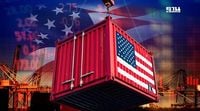The Department of International Trade Promotion (DITP) is accelerating Thai soft power, aiming to expand into the global market and increase opportunities for entrepreneurs in foreign countries. The initiative focuses on promoting Muay Thai, a sport with significant global recognition, as a means to boost various related industries.
According to DITP Director-General Sunanta Kangwanakulkit, the promotion plan is structured around three main components: promoting Muay Thai exports, exporting products related to Muay Thai, and leveraging soft power to enhance both Muay Thai and Thai products. The goal is to elevate Muay Thai's international profile and increase export opportunities.
To achieve this, DITP plans to collaborate with both government and private sectors to develop Muay Thai into a world-class product. This includes establishing Muay Thai training camps in Europe, Latin America, and the United States, as well as partnering with MMA and kickboxing gyms abroad to expand Muay Thai classes.
"We aim to open the Muay Thai market and related services, such as clothing, protective gear, and training camps in three European countries: Germany, Spain, and Denmark, along with various key cities in China, including Nanning, Qingdao, Chengdu, Xiamen, and Guangzhou," said Sunanta. The plan also includes showcasing and selling Muay Thai-related products, facilitating business negotiations, and hosting Muay Thai competitions like the Muay Thai World Series.
In terms of product exports, DITP is set to promote sports equipment, apparel, and nutritional supplements linked to Muay Thai. This includes supporting Thai brands like Twins and Fairtex in expanding their markets to Europe, America, and Asia. The use of online platforms like Amazon, Shopee, and AliExpress will be pivotal in selling Muay Thai gear and promoting Thai products through online marketing.
Furthermore, DITP intends to use media such as films, series, and games to popularize Muay Thai. By integrating Muay Thai into Hollywood productions and global series, they hope to amplify interest in the sport and related products. The promotion of Thai goods through Muay Thai athletes as brand ambassadors is also part of the strategy.
In 2024, DITP successfully promoted Muay Thai internationally through online trade events, providing Thai entrepreneurs the chance to market their products and services in Latin America. The agency has facilitated trade negotiations with Argentina and organized Muay Thai demonstrations in Buenos Aires.
On the other hand, the trade policies of the United States under Donald Trump are currently stirring global concern. These policies may pose a crisis for Thai exports, but they could also offer new opportunities for Thai entrepreneurs, as observed by Mr. Sanan Angubolkul, Chairman of the Thai Chamber of Commerce.
"During Trump's presidency, Thailand must not only survive the crisis but also create new opportunities for sustainable economic growth," Sanan stated. He emphasized that Trump's return to the presidency in 2025 will significantly impact the global trade landscape under his aggressive "America First" policy.
On April 2, 2025, the United States announced the implementation of Reciprocal Tariffs, imposing high tariffs on trading partners with trade surpluses, including Thailand, which faces tariffs as high as 36-37%. The Thai Chamber of Commerce and the Center for Economic and Business Forecasting at the University of the Thai Chamber of Commerce predict that these measures could impact Thailand's total exports by approximately 359,104 million baht, or -1.93% of GDP, particularly affecting key export sectors like electrical appliances, electronics, machinery, and processed food.
Despite the evident risks, Sanan noted that Trump's trade policies also present opportunities for Thailand. The Thai private sector has been preparing diligently, engaging in data analysis, discussions with the government, and developing bilateral negotiation strategies to safeguard their interests.
"We need to be strategic and proactive to maintain our competitiveness amidst uncertainty," Sanan advised. He outlined several strategies for Thai businesses to navigate the evolving trade landscape:
- Adjust market strategies to diversify risk away from reliance on the U.S. market, exploring potential new markets in the Middle East, Africa, Latin America, India, and ASEAN member countries.
- Enhance production efficiency using technology and innovation, such as AI, IoT, and automation systems, to mitigate rising costs due to tariffs.
- Accelerate trade negotiations and Thailand's role on the global stage, emphasizing that Thailand is not a competitor but a strategic ally that the U.S. should support.
- Closely monitor global economic, political, and trade developments to anticipate trends and adapt swiftly to changes.
"Today, while Trump may be changing the rules, I believe we can choose how to play the game. Trump's trade policy could pose a clear risk to Thai exports, but it may also be the most significant strategic test for Thai businesses in a decade. A clear vision, precise negotiations, and swift adaptability will determine whether Thailand merely survives or thrives amid the shifting global trade dynamics," Sanan concluded.





